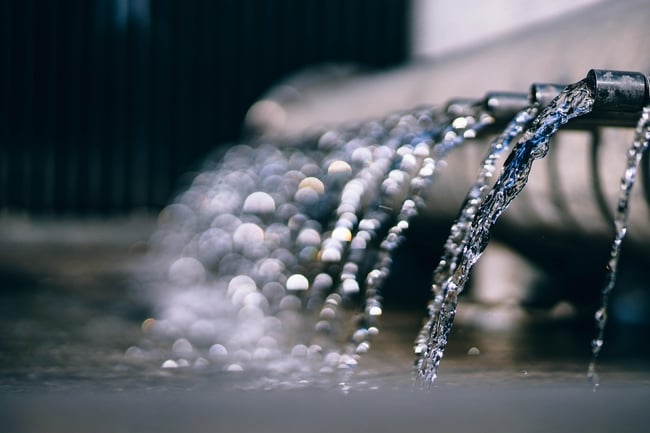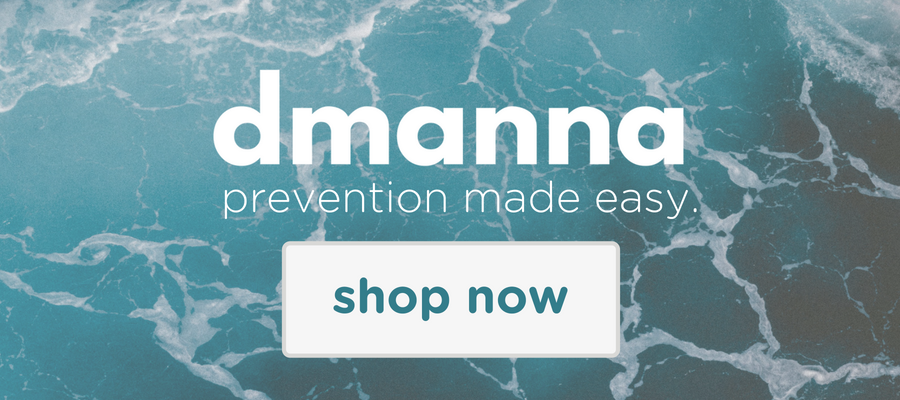
How much water should we drink everyday? How much water can we lose before we get dehydrated? When might dehydration lead to more chronic conditions like heat injury, seizures, or urinary tract infections? There is so much information out there, it’s often difficult to discern what advice to follow. Here is a comprehensive list of some unexpected ways your body can get dehydrated and what conditions may follow.
1) Diarrhea and Vomiting
Severe, acute diarrhea and vomiting from food poisoning, infection, alcohol consumption, or a range of other things can cause extreme loss of water and electrolytes in a very short period of time. It is very important to continue to drink fluids when you are experiencing frequent vomiting and diarrhea to replace those you have lost.
Read more at the Mayo Clinic.
2) Medications
If you develop an infection or health condition, more often than not, your doctor will prescribe you a treatment with discussing its potential side effects. Get in the habit of reading the fine print on the medication yourself, or ask your doctor to go over it with you.
Diuretics
If your medicine is a diuretic, it will cause dehydration and you will need to drink more fluids accordingly.
There are three types of diuretics: thiazide, loop, and potassium-sparing. They are usually prescribed if you have high blood pressure or heart problems to cut the amount of fluid in your blood vessels and ease the pressure in your veins. You may also be prescribed a diuretic for heart failure, liver failure, glaucoma, edema, and kidney disorders.
Laxatives
If overused, laxatives can sometimes cause dehydration.
Chemotherapy
Up to 80% of people prescribed chemotherapy experience side effects of vomiting and diarrhea. Some chemo patients get infections and high fevers that cause excessive sweating and therefore dehydration.
Read more on WebMD.
SEE ALSO: 3 Amazing Women’s Subscription Products You Need In Your Life Right Now
3) Old Age

There is significant evidence that suggests that our perception of thirst declines as we age, making it more difficult to determine when we need to drink more fluids. It is therefore common for the elderly to be hospitalized with fatigue and dehydration, which can lead to and exacerbate other medical conditions.
Fifty percent of the elderly patients in long-term care facilities who experienced febrile episodes or seizures (convulsions associated with high body temperature) were found to be dehydrated, and twenty-seven percent of long-term care patients referred to hospitals was admitted due to dehydration.
Read more on Medscape.
4) Extreme Weather
You’ve probably heard that hot weather will dehydrate you by making you sweat more. But did you know that cold weather can also cause dehydration?
Cold weather causes a diminished sense of thirst—up to forty percent! When we are cold, our blood vessels constrict to conserve heat by drawing more blood to our body’s core and away from our extremities, which in turn causes our body to feel more hydrated than it actually is. This means that our body isn’t conserving urine normally or signaling that it’s dehydrated through thirst.
The best way to combat winter thirst is to track how much you are drinking to make sure you get enough even if you don’t feel thirsty. Experts suggest drinking between two to three liters of fluids per day to stay properly hydrated.
Read more at DripDrop Dehydration Relief.
SEE ALSO: A Safer Alternative: Why Prevention Is Better Than Antibiotics For UTIs
5) Diseases And Health Conditions
Diabetes
Patients with diabetes are at higher risk of dehydration due to high levels of glucose in their bloodstream. As your kidneys try to filter out the glucose, they create more urine more frequently, requiring more frequent voiding.
Gastrointestinal Diseases
Between sixty and seventy million Americans suffer from a digestive disease. This includes diseases such as Crohn’s, Colitis, and Irritable Bowel Syndrome. These diseases often cause diarrhea, and some conditions such as short bowel syndrome prevent the small intestine from effectively absorbing water and electrolytes.
Read more at DripDrop Dehydration Relief.
Extreme Dehydration Can Cause Many Severe Conditions

Our bodies are sixty percent water, on average. When we lose just one to two percent of that amount, we are considered to be dehydrated.
Dehydration normally manifests in small, manageable ways. The most common symptoms are headaches, thirst, less urge to urinate, fatigue, darker urine, dizziness, and confusion.
If we let ourselves get very dehydrated, however—or if we have a condition that causes us to lose a large amount of fluids at once—much more serious complications may occur.
Heat Injury
Heat injuries are most common from exercising and sweating profusely. They range from heat cramps to heat exhaustion or even as extreme as heat stroke.
Seizures
If you have an imbalance or lack of electrolytes—minerals that help to carry electrical signals between cells—they do not function properly, potentially leading to involuntary muscle contractions and sometimes a loss of consciousness.
Low Blood Volume Shock (hypovolemic shock)
When you are extremely dehydrated, the amount of fluid in your blood vessels drops severely, causing low blood volume, low blood pressure, and a loss of the amount of oxygen in your body.
Read more at the Mayo Clinic.
SEE ALSO: Are You At Risk For Chronic UTIS?
Urinary And Kidney Problems
If you experience prolonged dehydration, it can cause kidney stones and even kidney failure.
Urinary Tract Infections
Studies have shown that women who drink less water are more prone to recurrent urinary tract infections, which, if left untreated, can lead to bladder and/or kidney infections, sepsis, and even death. Symptoms of UTI include painful urinating, blood or pus in your urine, and pelvic pain.
In a random clinical trial led by Dr. Thomas Hooton, clinical director of the division of infectious diseases at the University of Miami School of Medicine, 140 women were tracked over the course of a year. Half the group drank approximately 1.15 more liters of water per day, for an average total of 2.8 liters per day. The other group averaged 1.2 liters of water per day total.
The group that increased their water intake experienced 48% fewer urinary tract infections than did the control group.
What Happens If You Get A Urinary Tract Infection?
Currently, urinary tract infections are treatable with antibiotics, but with the rise of bacteria with multiple resistances to antibiotics, it’s possible that option will not be available to us in the not-so-distant future. Plus, antibiotics can cause harmful side effects and can actually increase our chances of getting another infection.
Why Choose Antibiotics When You Can Choose UTI Prevention?
The trick is to prevent urinary tract infections before they begin. Which means you need to stay hydrated. The better we hydrate, the more often our systems can flush out bad bacteria that cause infections.
D-Mannose For UTI Prevention
The other, equally important step for UTI prevention is adding d-mannose into your daily routine. D-mannose is a natural sugar found in berries and other fruits that has been scientifically proven to bind to the bacteria that causes UTIs and prevent it from attaching to the lining of your urinary tract or bladder.
Combine d-mannose with increased hydration for maximum UTI prevention effect.
Dmanna, The D-Mannose Daily Supplement
The easiest, most affordable and convenient way to get your d-mannose is with Dmanna, a daily UTI prevention powder comprised of pure d-mannose sourced from the highest quality natural ingredients. It comes in single-serving packets and dissolves instantly in any beverage, with no long term side effects.
Including Dmanna into your daily health routine allows you to disable the use of harmful antibiotics and kill UTIs before they ever develop.
What are you waiting for? Click below to discover more about Dmanna’s UTI prevention daily supplements.
.png?width=165&name=manna%20(3).png)





.png?width=320&name=Dmanna%20Blog%20Featured%20Image%20(1).png)

